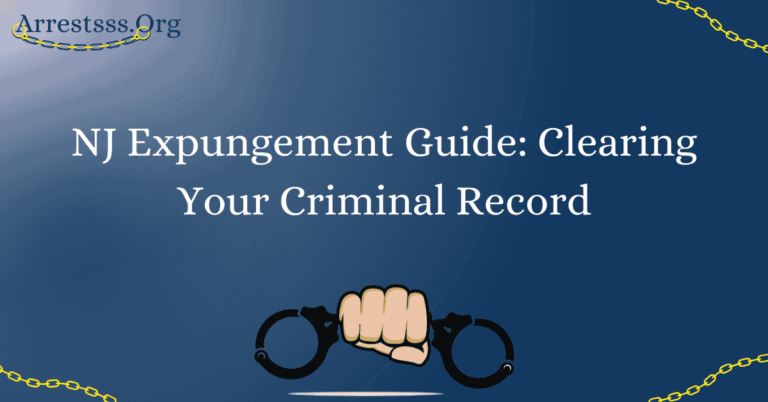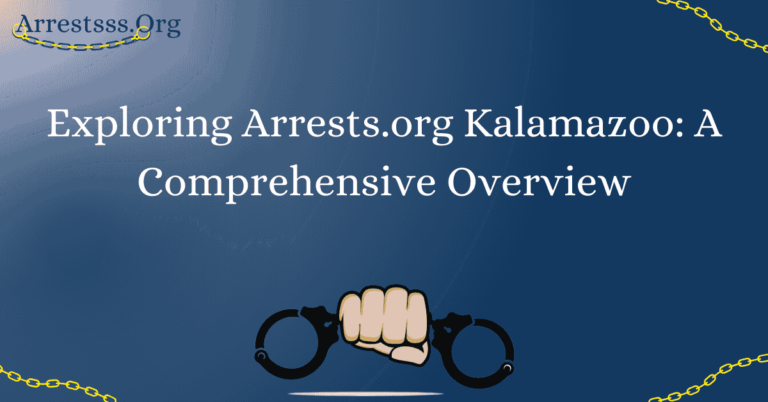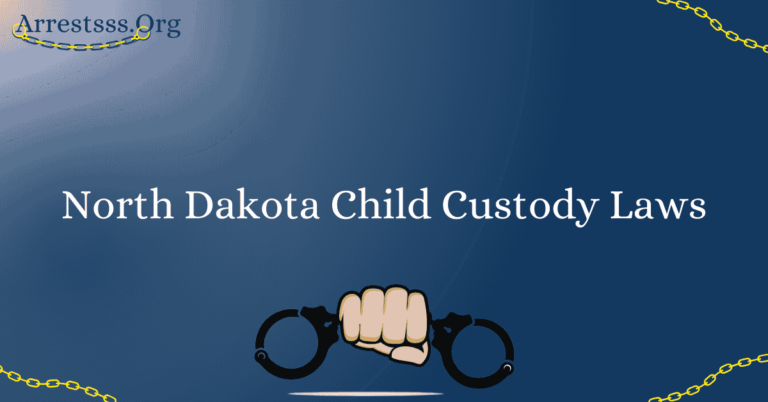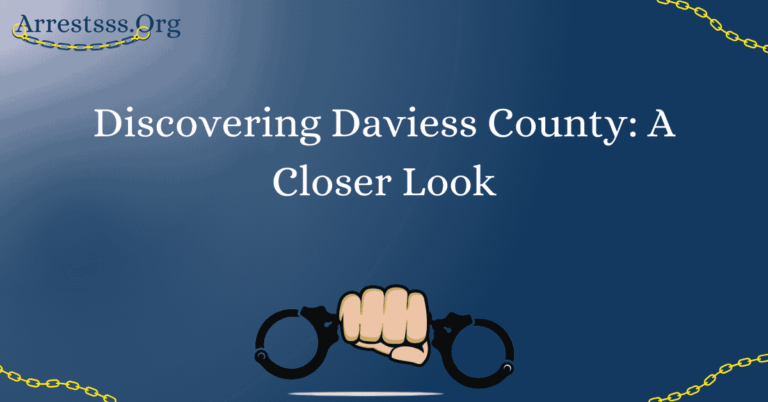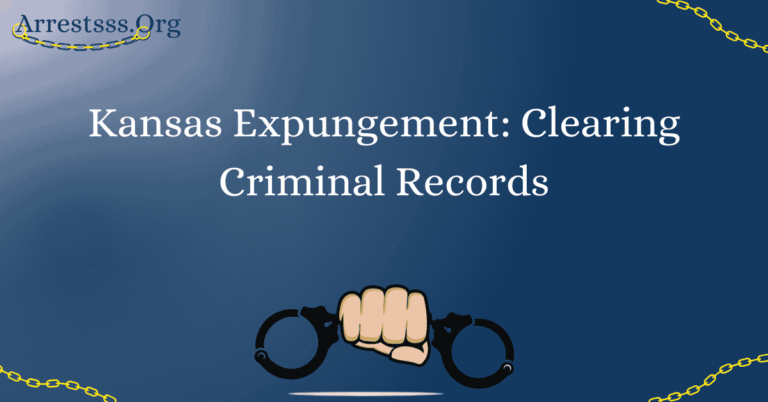Idaho Expungement: Clearing Your Criminal Record
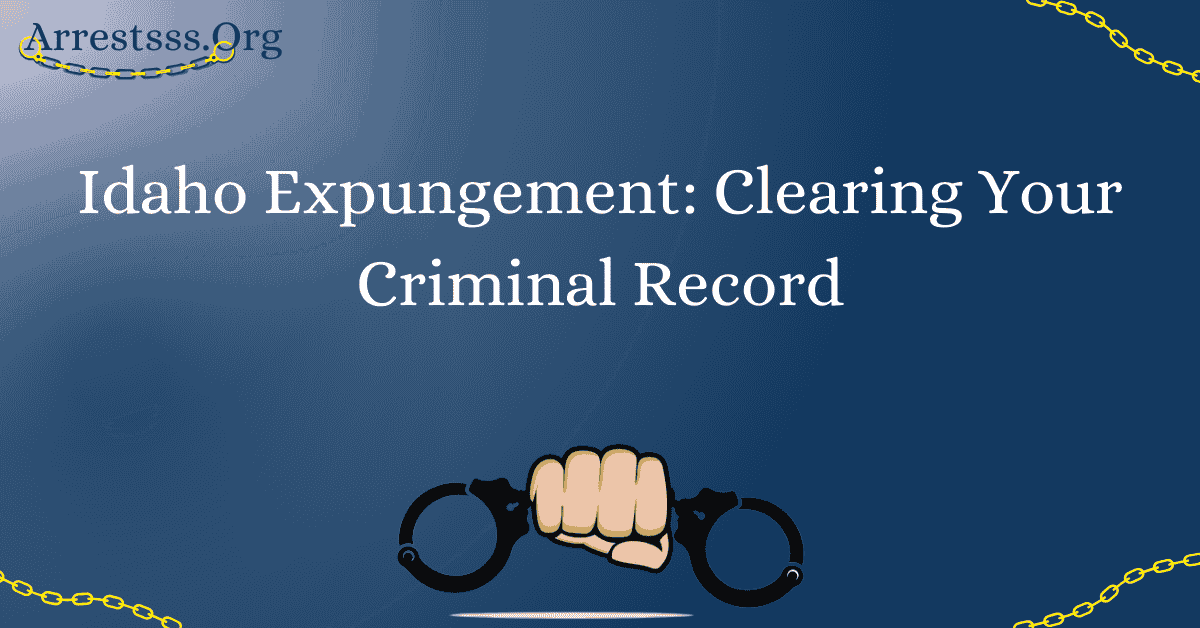
Clearing your criminal record in Idaho can be a pivotal step toward reclaiming your life and future. The process, known as expungement, offers individuals with past convictions a chance to start anew by erasing the stigma associated with a criminal record. In this comprehensive guide, we will delve into the Idaho criminal record expungement process, outlining its intricacies and providing invaluable insights to help you navigate this important legal endeavor.
Expungement Process in Idaho
Expunging your criminal record is a legal process that allows individuals to have certain convictions removed or sealed from public access. In Idaho, this process is designed to give people who have made mistakes in their past a second chance to rebuild their lives without the constant burden of a criminal record. To help you grasp the intricacies of Idaho’s criminal record expungement process, let’s break it down into key components:
Eligibility Criteria: To initiate the expungement process in Idaho, you must first determine if you meet the eligibility requirements. Generally, these criteria consider factors such as the nature of your conviction, the time that has passed since your conviction, and whether you have fulfilled all court-ordered obligations, including probation and restitution.
Filing a Petition: If you qualify for expungement, the next step is to file a petition with the appropriate court. This formal document outlines your request for record clearance and provides essential information about your case.
Court Review: After submitting your petition, the court will review your request. This review process may involve assessing your criminal history, the circumstances surrounding your conviction, and your behavior since the conviction.
Notification and Response: In many cases, various agencies, including law enforcement and the prosecutor’s office, will be notified of your expungement petition. They may have the opportunity to contest your request, so it’s essential to be prepared for potential objections.
Hearing: Depending on the circumstances, a hearing may be scheduled. During the hearing, you and any opposing parties will have the opportunity to present your arguments and evidence. The judge will then decide based on the merits of your case.
Outcome: If your expungement petition is approved, your criminal record will be cleared, and in some cases, it may be sealed from public access. This outcome can significantly impact your life by improving employment prospects, housing opportunities, and overall peace of mind.
Eligibility Criteria for Expungement in Idaho
To begin the journey towards expunging your criminal record in Idaho, it’s vital to understand the eligibility criteria. Meeting these requirements is the first step in the process, as only those who qualify can proceed with their expungement petition. Here, we’ll outline the primary factors that determine whether you are eligible for expungement in the state of Idaho.
Nature of the Conviction: Idaho law distinguishes between misdemeanors and felonies when it comes to expungement eligibility. Generally, individuals with misdemeanor convictions have a better chance of expungement than those with felony convictions. However, certain felony convictions may still be eligible under specific circumstances.
Waiting Period: The timing of your expungement petition is crucial. In Idaho, you must wait a certain period after completing your sentence, probation, and all court-ordered requirements before you can apply for expungement. This waiting period varies depending on the offense and can range from one to five years.
Fulfillment of Obligations: To be eligible, you must have met all court-ordered obligations, including paying fines, restitution, and completing any required probation or parole. Failure to satisfy these obligations may result in ineligibility for expungement.
Subsequent Convictions: Having subsequent convictions on your record can impact your eligibility for expungement. In many cases, individuals with multiple convictions, especially if they occurred after the initial offense, may not be eligible.
Severity of Offense: The nature and severity of the offense play a role in eligibility. Some offenses, such as violent crimes and sex offenses, may be excluded from expungement altogether, while others may require more stringent criteria to qualify.
Age at the Time of Conviction: Juvenile offenders may have different expungement criteria than adult offenders. Idaho law provides provisions for the expungement of juvenile records, recognizing the potential for rehabilitation and a fresh start for young individuals.
Understanding these eligibility criteria is crucial before proceeding with your expungement process. In the following sections, we will delve into each criterion in detail, helping you determine your eligibility and navigate the path toward a clean criminal record.
FAQ’s
What is the main goal of expunging a criminal record in Idaho?
The primary goal of expunging a criminal record in Idaho is to provide individuals with a fresh start by clearing or sealing their criminal history. This process aims to remove the barriers and stigma associated with a criminal record, enabling individuals to pursue better employment opportunities, housing, and a higher quality of life.
How long does the expungement process typically take in Idaho?
The timeline for the expungement process in Idaho can vary widely based on individual circumstances and court caseloads. On average, it may take several months to a year or more from the initial filing of the petition to the final determination.
Can I expunge multiple convictions from my criminal record in Idaho?
Idaho law allows for the expungement of multiple convictions in certain cases. However, eligibility criteria and waiting periods may apply, depending on the nature and timing of the convictions. Consulting with an attorney is advisable to assess your specific situation.
Are there any offenses that cannot be expunged in Idaho?
Yes, some offenses generally cannot be expunged in Idaho, including convictions for certain violent crimes, sex offenses, and felonies involving a firearm. It’s essential to review the specific eligibility criteria to determine if your offense is eligible for expungement.
Do I need an attorney to navigate the Idaho expungement process?
While it’s not mandatory to have an attorney, seeking legal counsel is highly advisable. An experienced attorney can provide valuable guidance, ensure proper paperwork is filed, and represent your interests effectively during the expungement process, increasing your chances of a successful outcome.

